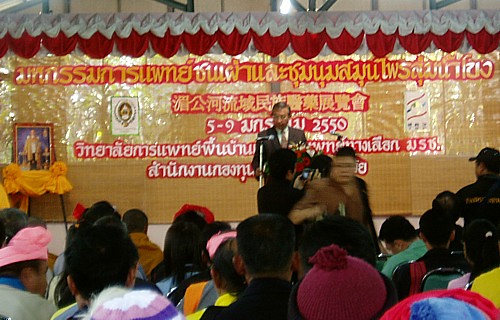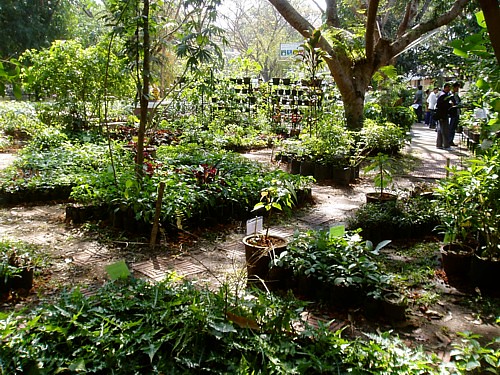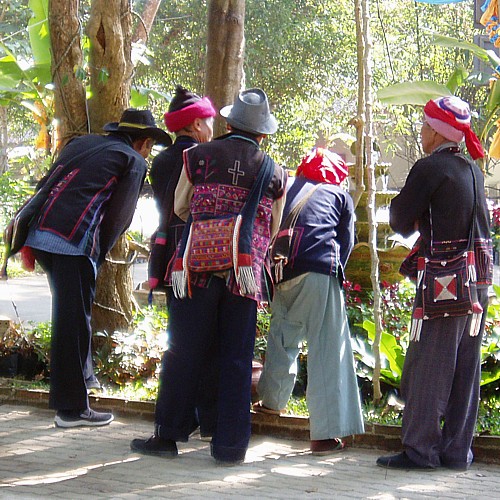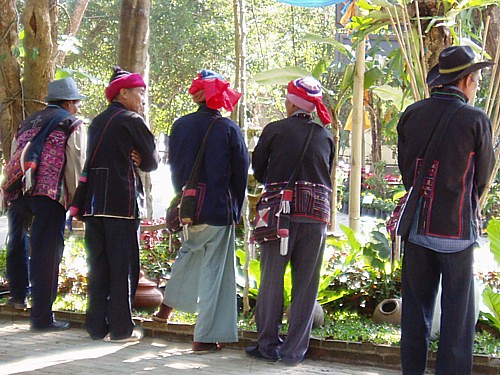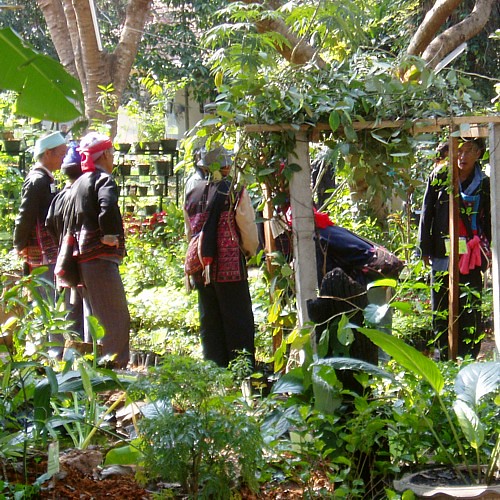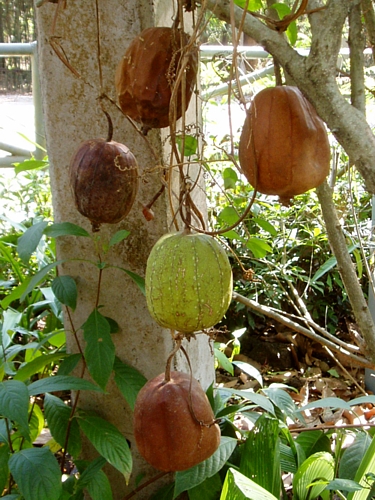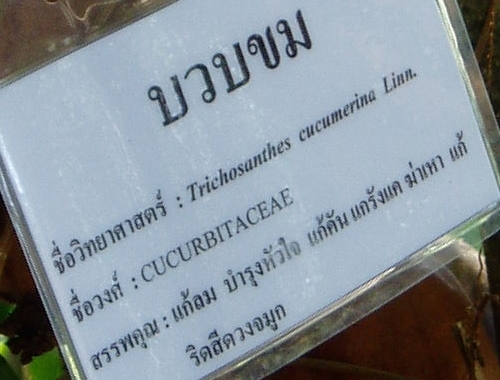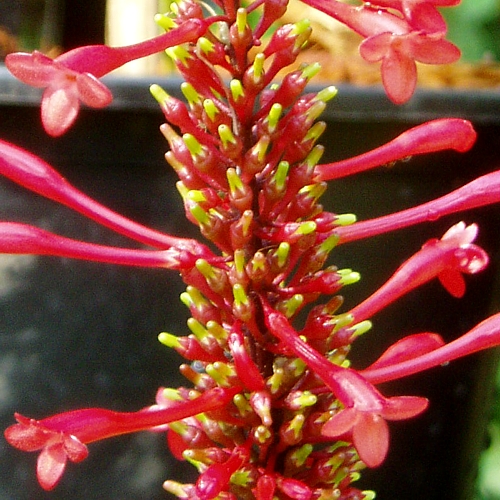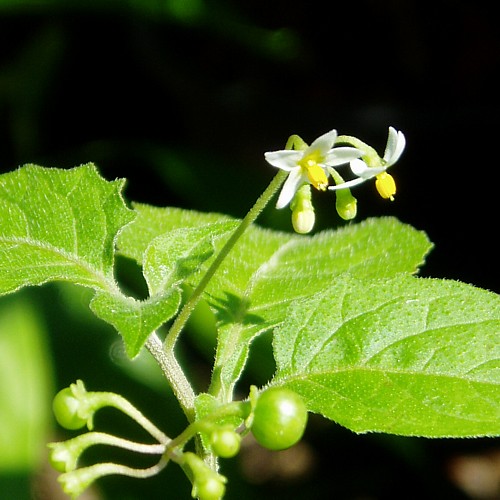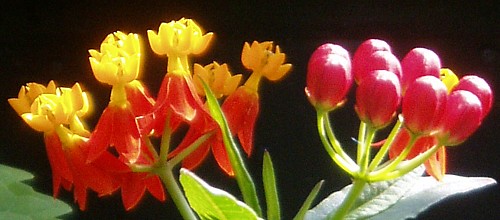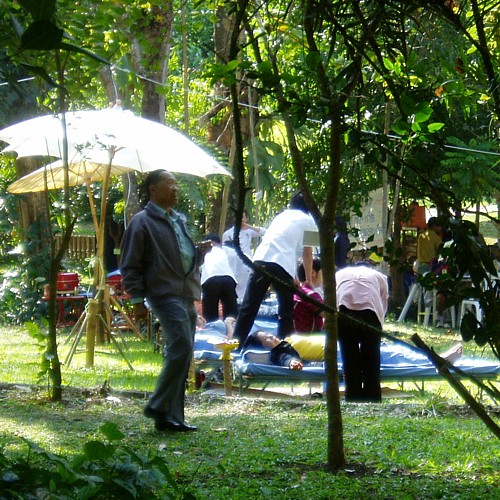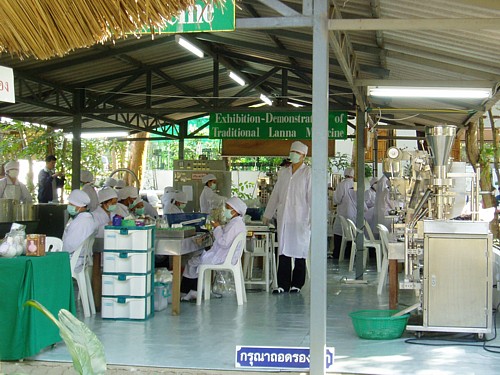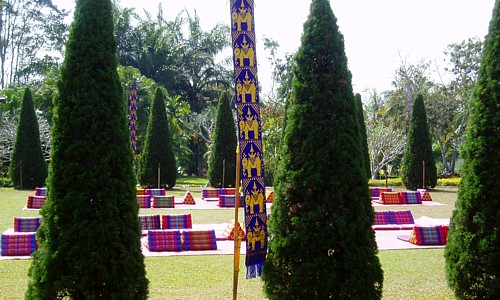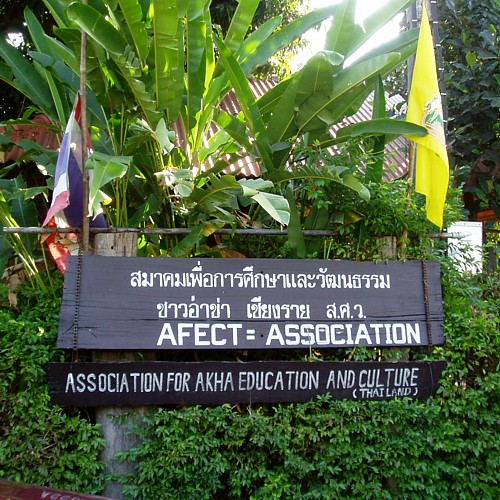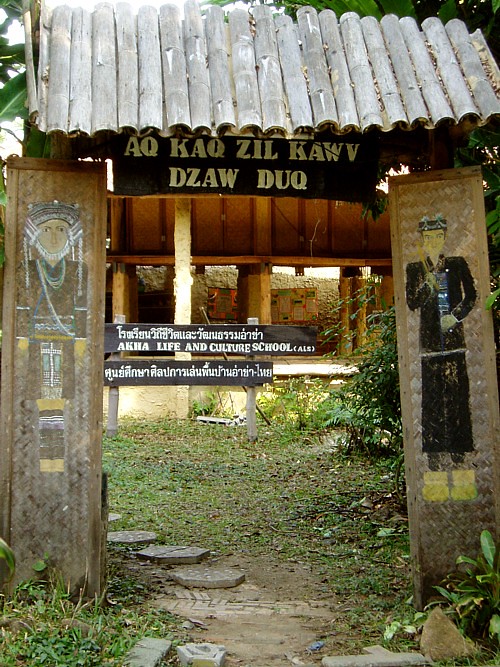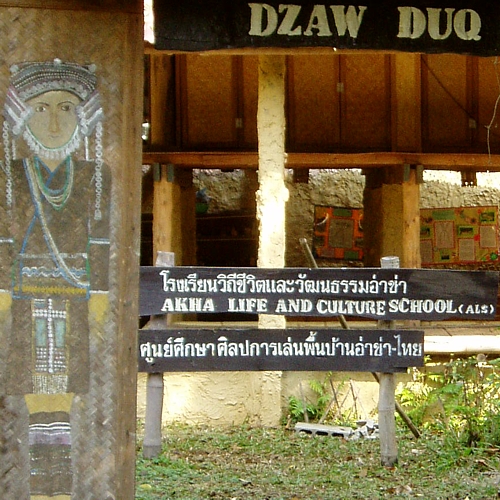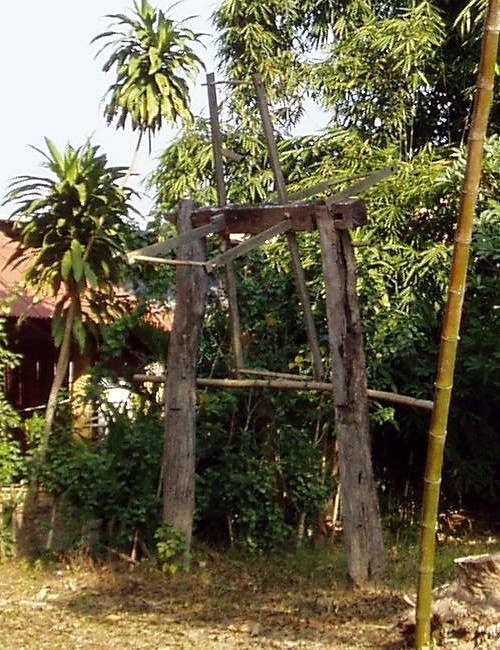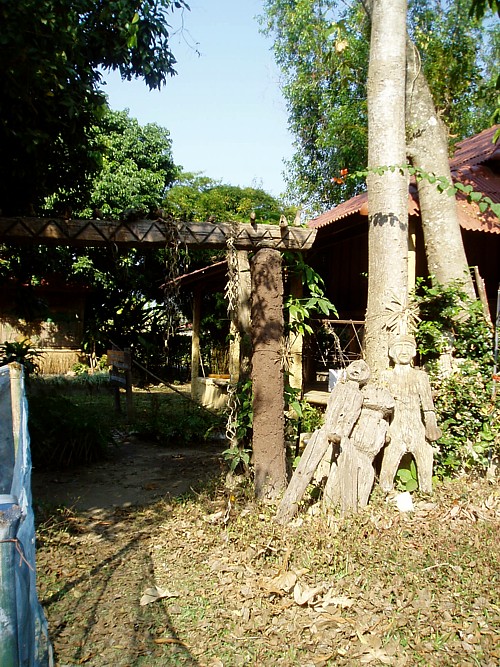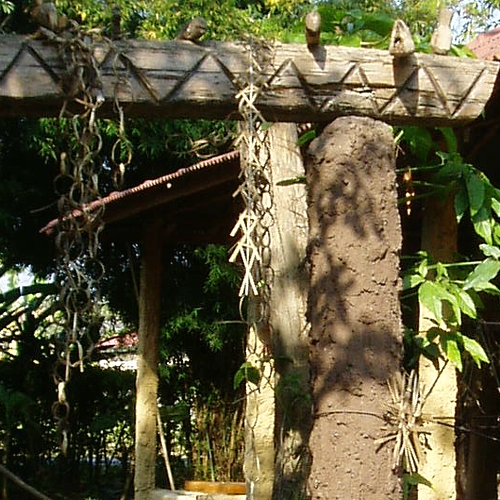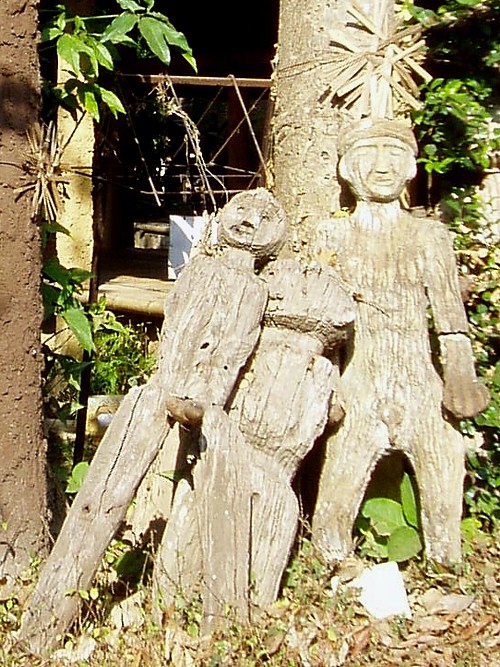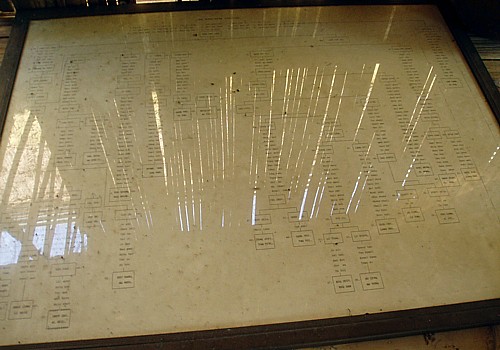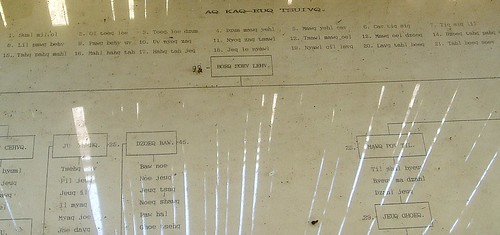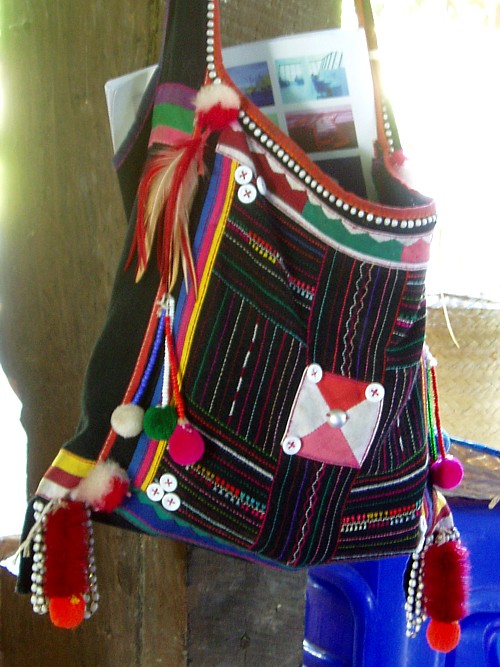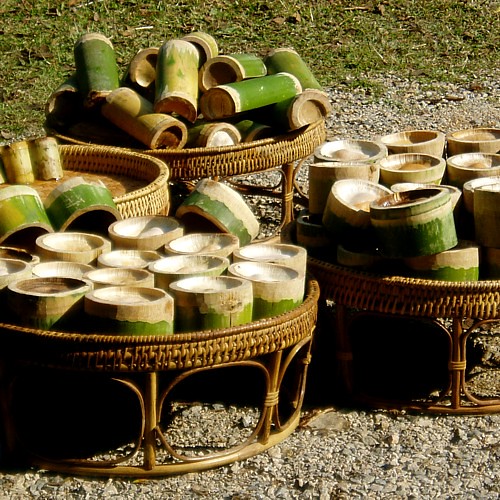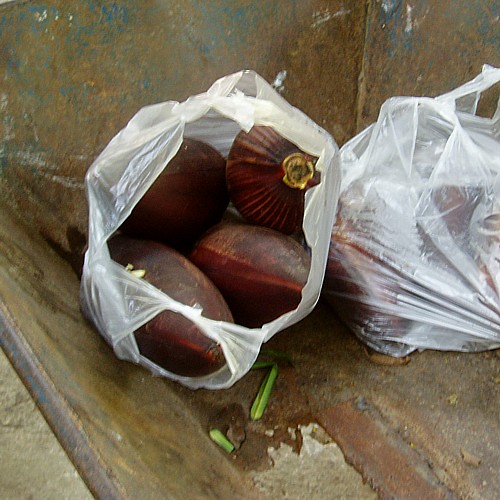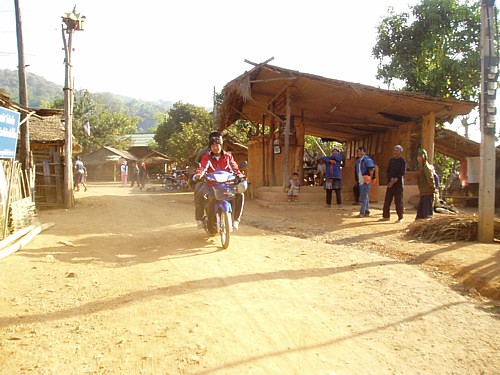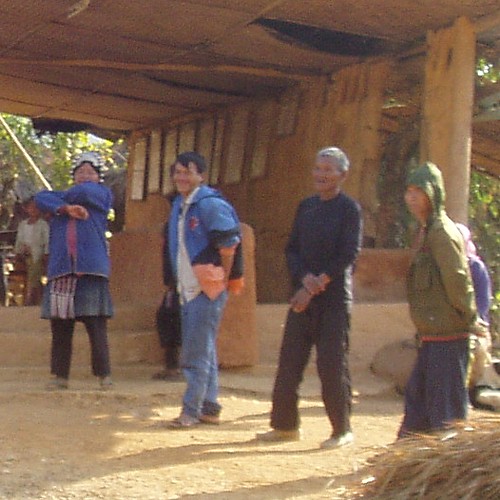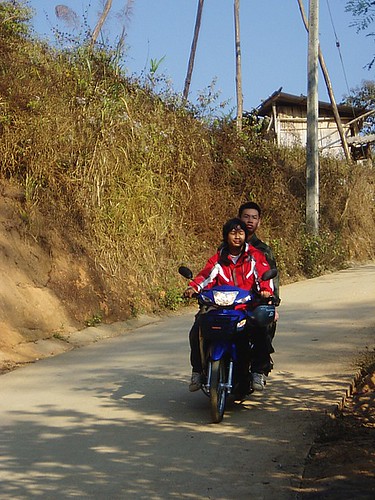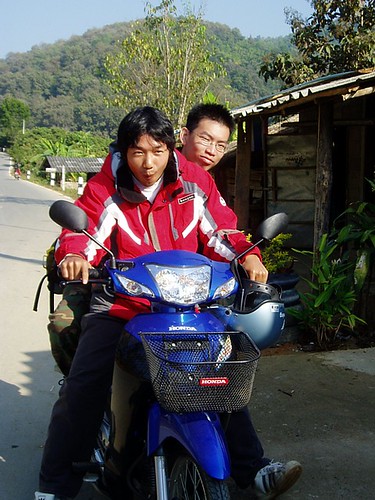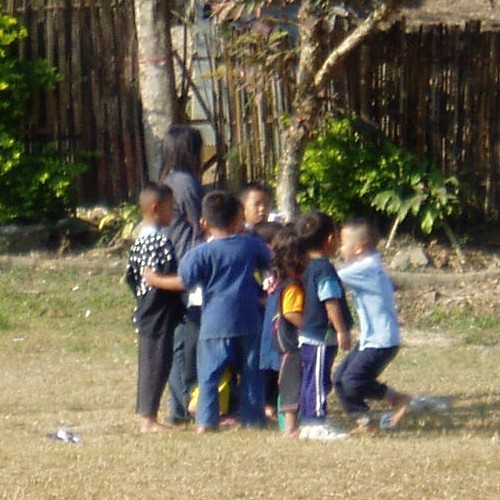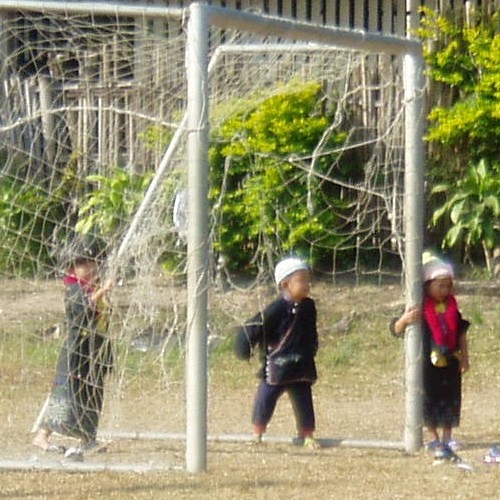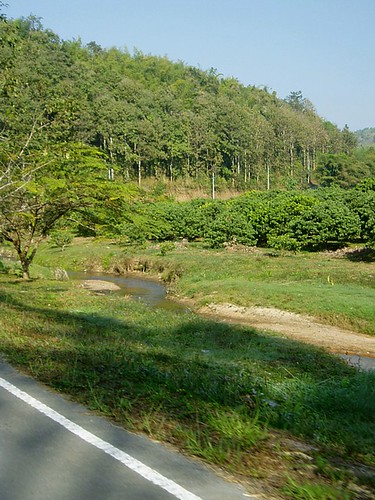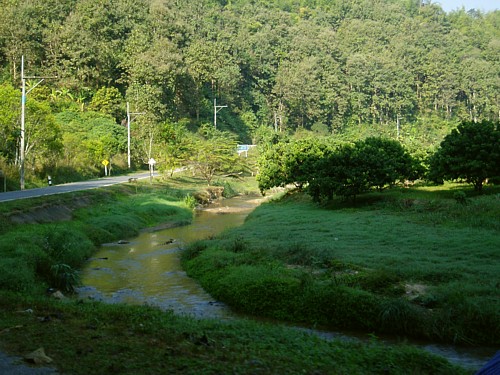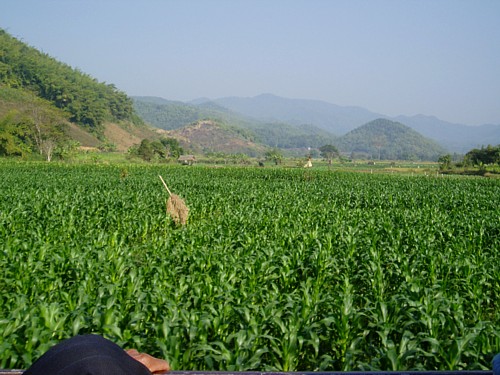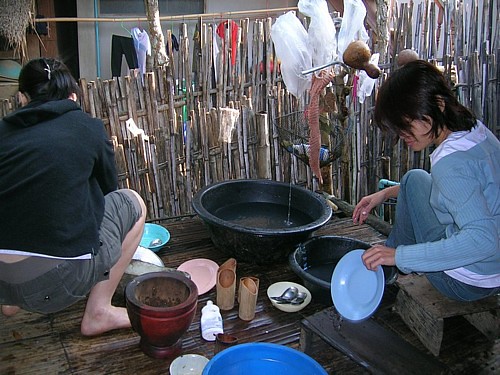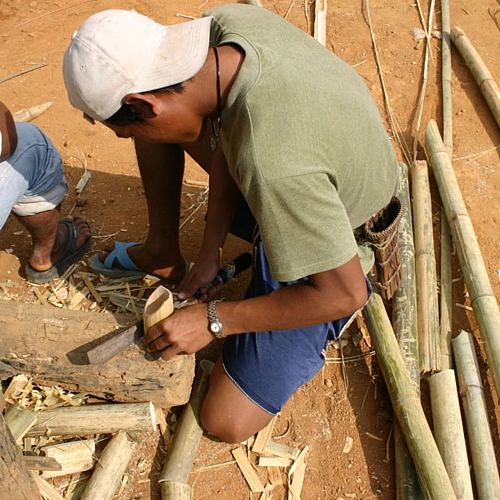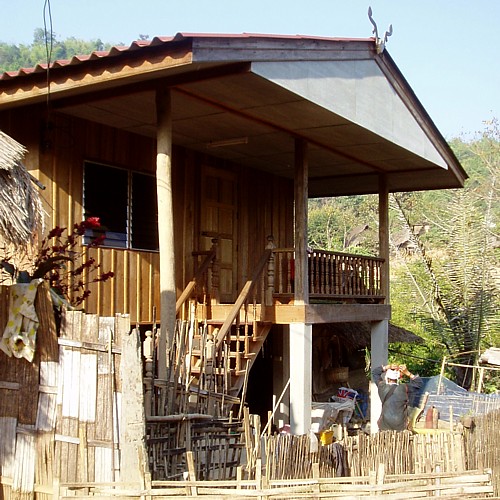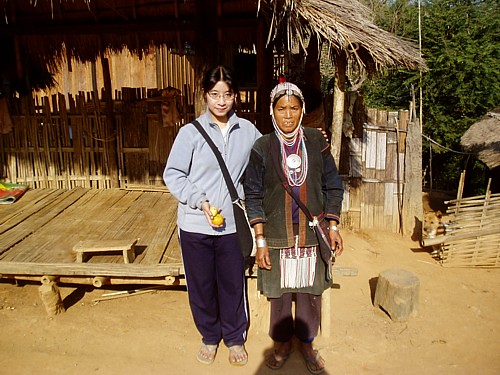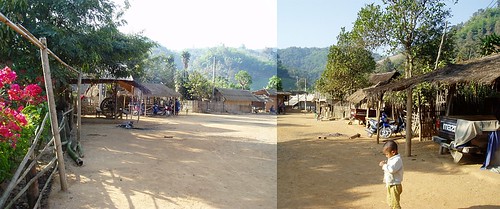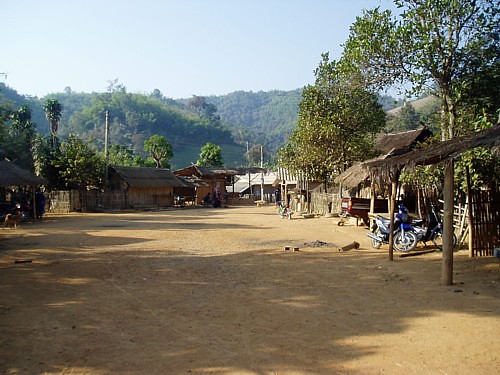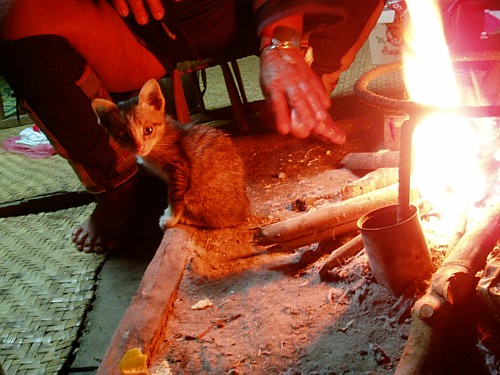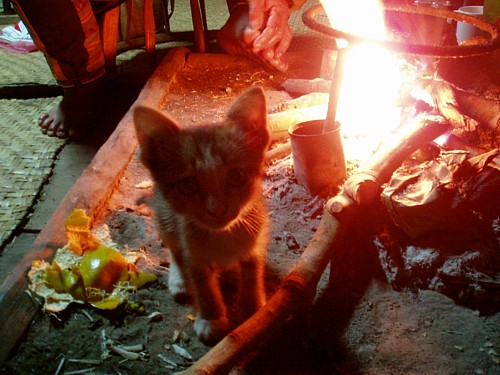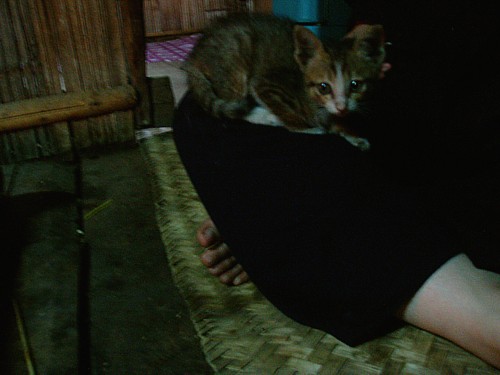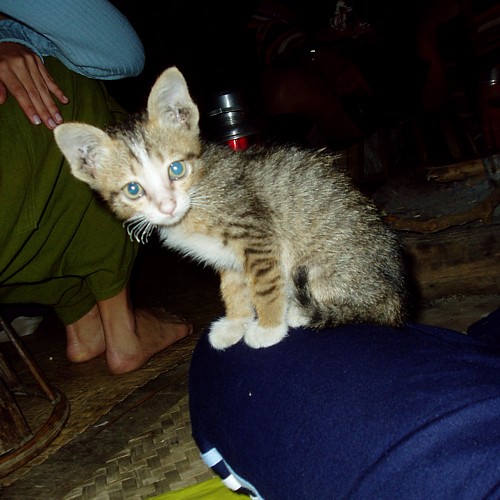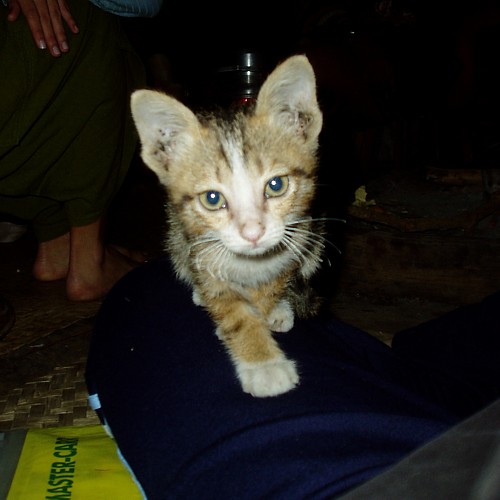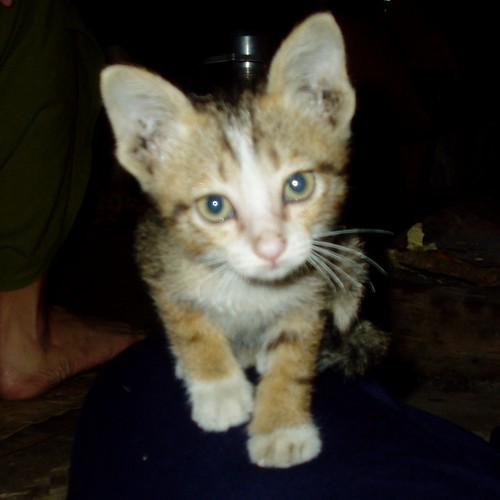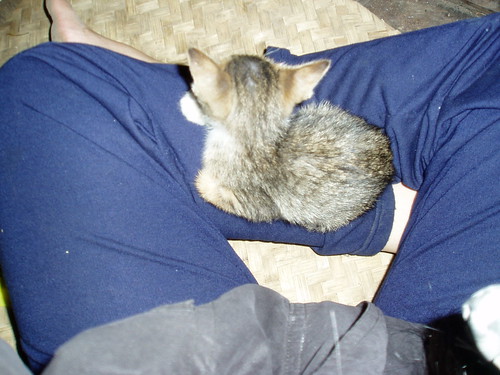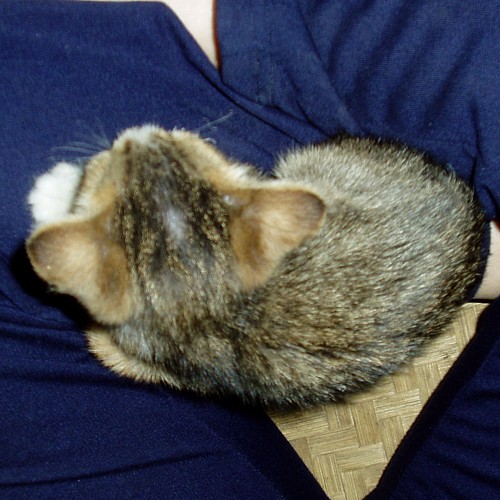On one of the beams above the cat's head:
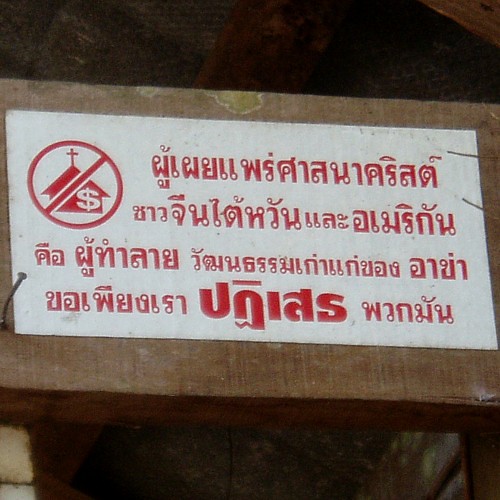
ผู้ phu เผย phoei แผ่ phae (evangelist) ศาสนา saatsanaa คริสต์ khrit (Christian)
ชาว chao จีน jin (Chinese) ไต้หวัน dtaiwan (Taiwan) และ lae (and) อเมริกัน amerikan (American)
คือ kheu (be) ผู้ phu ทำ tham ลาย laai (destructor) วัฒนธรรม wattanatham (culture) เก่า gao แก่ gae (ancient) ของ khong (of) อาข่า Akha
ขอ khor (implore) เพียง phiang (enough of?) เรา rao (us) ปฏิเสธ bpa'dtiset (reject) พวก phuak มัน man (them)
Northern Thailand has a large missionary industry (a few examples:
1,
2,
3,
4,
5,
6,
7,
8,
9,
10,
11 &
12) that
targets the
Akha people &
other ethnic
minorities. The cat has been to Chiangrai in 2004, 2005, 2007 & 2009 (plus a couple of times in the late 80s-early 90s). Every time it returns, it sees even more new
churches planted since its previous visit. By late 2009 churches appeared to outnumber Buddhist temples within the central part of Chiangrai city. Growing in tandem is the number of Christian-run 'orphanages' & children's homes (a few examples:
1,
2,
3,
4,
5,
7,
6,
8,
9,
10 &
11).
While many of the missionaries are from/sponsored by the
Bible Belt of USA, evangelists from other countries like South Korea, Taiwan &
Singapore* are also making their presence felt in Chiangrai & Chiangmai (a few examples:
1,
2,
3,
4,
5 &
6). Apart from preaching at schools & universities, recruiting & training local pastors, & filling 'orphanages', homes &
dormitories with hilltribe kids, they also do street evangelism (including at the Saturday walking street), offer free English lessons in return for 'souls', place copies of bibles in Buddhist temples, paste
stickers on ATMs & try to get the monks at Buddhist temples, including the temple at which the เจ้าคณะจังหวัด jao khana jangwat (chief monk of Chiangrai province) resides, to attend church & convert to Christianity.
Many provide the hilltribe people with infrastructure & services that the Thai government has failed to, such as running water, clinics, schools, student dormitories,
shelters & care for
people living with HIV/AIDS. However, the help & 'love' professed by these faith-based organisations for the people is not unconditional, but comes with an
agenda, resulting in what
critics have
condemned as
cultural genocide. The current director of
AFECT speaks about the
problems here &
here. Many Ban Apa people like Ata & the happy Apa appear in the
Al Jazeera video, including the buseh who talks about his son at 1:58. The cat has heard quite a few similar accounts of Akha & Yao students who were forbidden to leave their dormitories & return home when they refused to convert & be trained as a new generation of local missionaries to be sent forth to convert their entire villages. With the proliferation of children's homes, 'orphanages' & such dormitories in northern Thailand, is a
'lost generation' of hilltribe people (much like the
Stolen Generation of the
Aborigines in
Australia) in the making?
On another beam -
Matt McDaniels was here?

While Christian missionaries form the overwhelming majority of faith-based groups operating among the hilltribes, there are also a few Buddhist temples that ordain hilltribe boys as temporary novice monks during the school holidays (e.g. in the Ban Thoed Thai area), & many in Chiangrai & northern Laos also accept them as long term novice monks (probably the most famous in Chiangrai being วัดถ้ำป่าอาชาทอง Wat Tham Pa Acha Thong of
Buddha's Lost Children fame). Hilltribe kids who attend Thai government schools are also required to pay their respects to images of the Buddha during school assemblies & functions (though knowing how to 'go through the motions' is useful for them in integrating into Thai society). However, Buddhism isn't bent on demonising all other religions - many around the world happily mix all sorts of beliefs (e.g. Shinto, Tao, Brahminism, all sorts of animism, etc) with Buddhism without fear of being denounced or excommunicated - & are free to question the teachings & to leave the temple & religion if they so wish. Apart from the Christians & Buddhists, Muslims have also
come into the picture, although the cat hasn't heard anything firsthand about them, having met only ethnic Chinese Muslims in Chiangrai.
Kindness & charity are universal to all mainstream religions, & most if not all atheists & agnostics believe in them too. There is a lot of good (double 'O') work that can be done to help others, without having to use it as a tool for proselytising, without having to bring religion into the picture (a few examples:
1,
2,
3,
4,
5,
6,
7 &
8). Isn't love supposed to be unconditional? Respect for others as fellow humans includes respecting (1) their freedom to choose their own path & way of life, (2) their freedom to determine their own identity, & (3) their intelligence to decide what's best for themselves, rather than regarding them as sheep to be herded with instructions from barking sheepdogs. & if any religion were that great, there would be zero need for proselytising & zero need for castigation/punishment of apostates, for if it were really that great, it would be plain for everyone to see & they would flock to it on their own accord. In the cat's opinion, proselytising simply reflects the 'insecurity complex' of the followers of a religion ;)
* The cat is starting to see YEP & OCIP teams partnering NGOs with religious agenda & also orphanages - wonder what is SIF, MOE, MCYS & Singaporean taxpayers' stand on this, voluntourism &
orphanage tourism.
